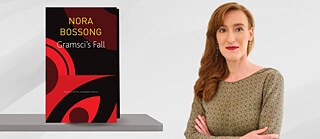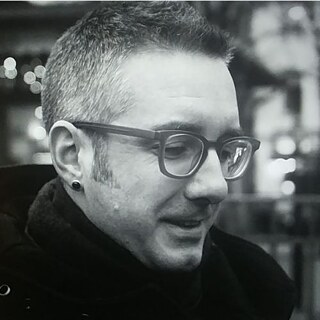Nora Bossong
Gramsci's Fall

“(the) central questions of my novel are about the individual strength to love, the political power to improve society, and to fight for those who are too weak to fend for themselves…”
German writer and poet Nora Bossong’s Gramsci’s Fall is a tale of hopes and the heart-breaking disappointment of some revolutions.
By Prathap Nair
There is enough intrigue in the Italian Marxist thinker Antonio Gramsci’s life to write a few political thrillers. A prominent Marxist figure in the twenties and thirties, Gramsci was an outspoken critic of the Italian dictator Mussolini's rule and was imprisoned as a result. Gramsci, who is still considered among the foremost political thinkers of the European left of the 20th century, died at a young age of 46. But he left behind a treasure trove of writings both in the form of political theory in his work called Prison Notebooks and numerous letters he wrote to his loved ones from jail.
"The so-called European communism once seemed like a promising idea…”
Nora Bossong in Gramsci’s Fall
Nora on her book "Gramsci’s Fall"
In this brief interview, Nora Bossong talks about her book and what it means to her.
Why did you decide to resurrect Gramsci who is mostly only discussed in the annals of academia?
It is not true that Gramsci is only a footnote in academia nowadays. He continues to be one of the most important political thinkers of the 20th century in Europe – be it France, Italy, or Germany. His significance fuels discussions between left-wing intellectuals and politicians, and those from the extreme right. In the 1970s, Gramsci was an icon for Western socialists and communists (the so-called European communism once seemed a promising idea for the Left because it was neither like western capitalism nor the soviet-communism). At the same time, Alain de Benoît, the key thinker of the Nouvelle Droit, a think tank for right extremists in France, delved into Gramsci’s ideas on revolution and power.
What considerations did you have to avoid the trap of romanticizing Gramsci while fictionalising a historical figure like him?
Many sources provide us with a deep understanding of his life and surroundings including feelings, thoughts and worries in private relations. If we focus solely on the prison diaries, a collection spanning thousands of pages, it provides an in-depth view. Then we have hundreds of pages of letters, including those from his wife and her sisters. In addition, there are documents from important members of the Italian Communist Party and the Soviet Communist Party, along with official documents from within the party’s inner circle. We have a wealth of documents about the after-life of Gramsci, who was, as I previously said, an icon for different groups.
Both Gramsci and Stöver are lovelorn individuals. But one is a revolutionary and the other is a middlingly average, entitled man. Which of these was more fun to write and which was challenging?
Gramsci’s narrative contains more bitter parts and more gravity. Stöver, on the other hand, has no ideals anymore, is self-centred, and may be seen as an overdrawn figure of a political left, that has lost its focus. The Stöver scenes inject humour and are funnier, whereas the scenes with Gramsci are emotionally touching. They are complementary, like a duo dancing together around the central questions of the novel about the individual strength to love, the political power to improve society, and to fight for those who are too weak to fend for themselves.
What would a figure like Gramsci have made of today's global political climate?
Gramsci is deeply involved. For him, the prospect of his ideas being used by the extreme right to destroy society would be a nightmare. But his studies on topics like civil society, the suppressed and subaltern and the power of common sense, were so wide and eye-opening, that it is not entirely surprising to see his ideas being exploited from the other side of the political range.
Are there any more of your works being translated into English? (Or any in the works?)
There is a poetry book scheduled to be translated next year, and the prospect of additional novels to follow.
Do you read outside German literature too (in particular, Indian writing in English?) If you do, tell us something you have read and enjoyed recently.
Certainly. I read a lot of novelists and poets beyond the German realm. I enjoyed the poetry book by Sujata Bhatt called Die Stinkrose recently. Bhatt is an Indian poet whose work impresses me!

My connection to the work of Antonio Gramsci has to do with my relationship with Rome (I lived there on and off for close to fifteen years), its Non-Catholic Cemetery (where Gramsci is buried and I was a volunteer), and my longstanding interest in the poetry of Pier Paolo Pasolini. Though I first read Hamish Henderson’s translation of the Prison Letters well over twenty years ago, I hadn’t reread them until I began translating Nora Bossong’s novel. In many ways, being intimate with the story’s primary landscape, I did not find it so difficult to enter its world. Essentially, I believe that translation is an act of deep listening and that every book, just as every author, is unique. No matter what you are translating you are trying to represent the original and its distinctive textures in a compelling way that both preserves and extends its echo while creating something new. I feel that what is particular in the original should be retained in its target language, even when—or because!—a certain friction is the result. Expansion of the field is what we’re after, not contraction, not more of the same.
About the author
